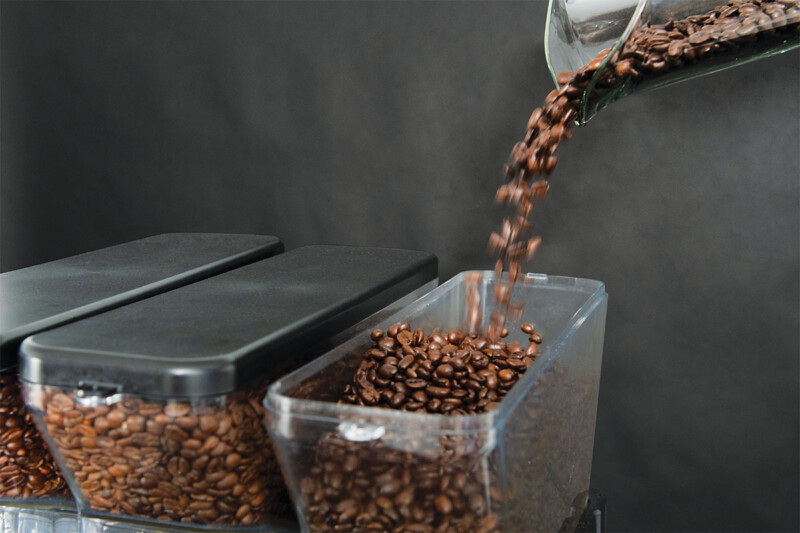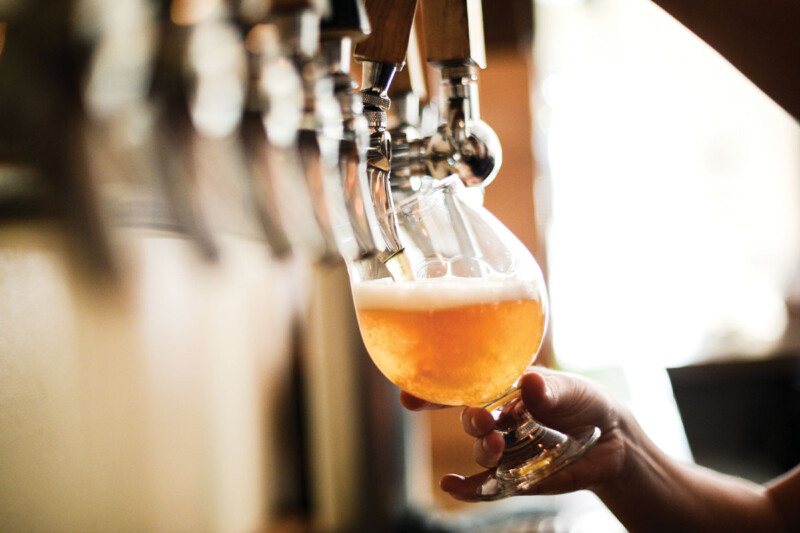The Growing Thirst for On-Demand Beverages
Equipment manufacturers look to hydrate and innovate with autonomous, collaborative beverage innovations.
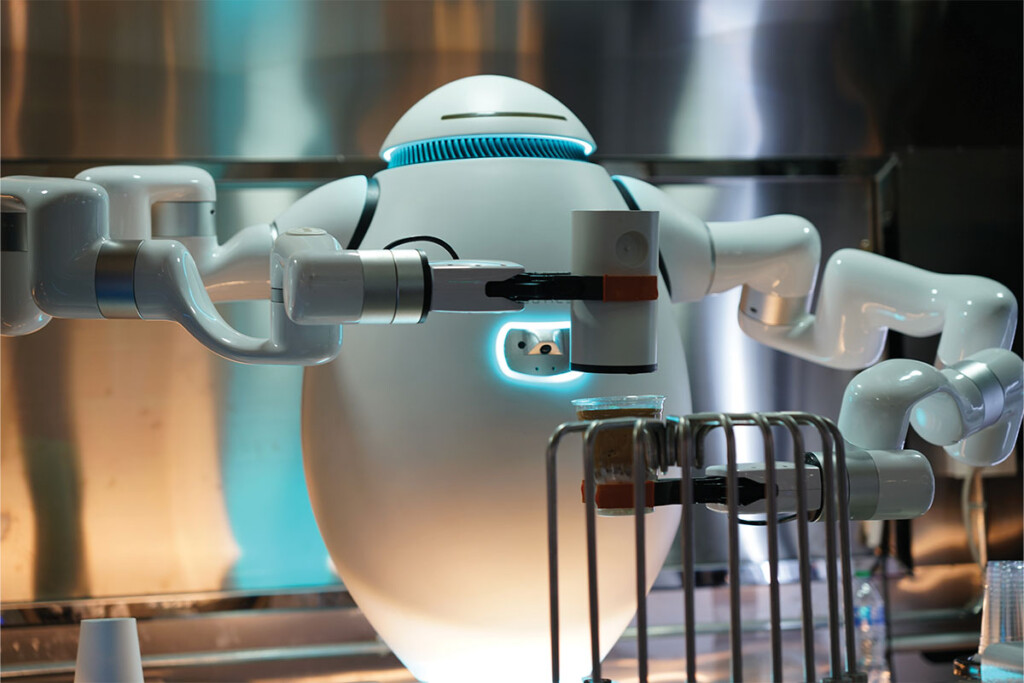
In simpler times, people would meet and chat around a soda fountain.
Now, a meeting spot might be a kiosk where a robot makes you a cold beverage.
Equipment innovators are thinking through how customers want beverages away from home, including where, when and what kind of sips they are seeking. “Demand is exploding at the moment, especially for boba teas and shakes,” says one beverage equipment manufacturer. Several newer machines offer beverages meant to stand out—things you can’t get from a standard soda fountain. In turn, the makers hope operators will see novelty as well as a logistical bonus that equipment can save time and labor by making the process more efficient.
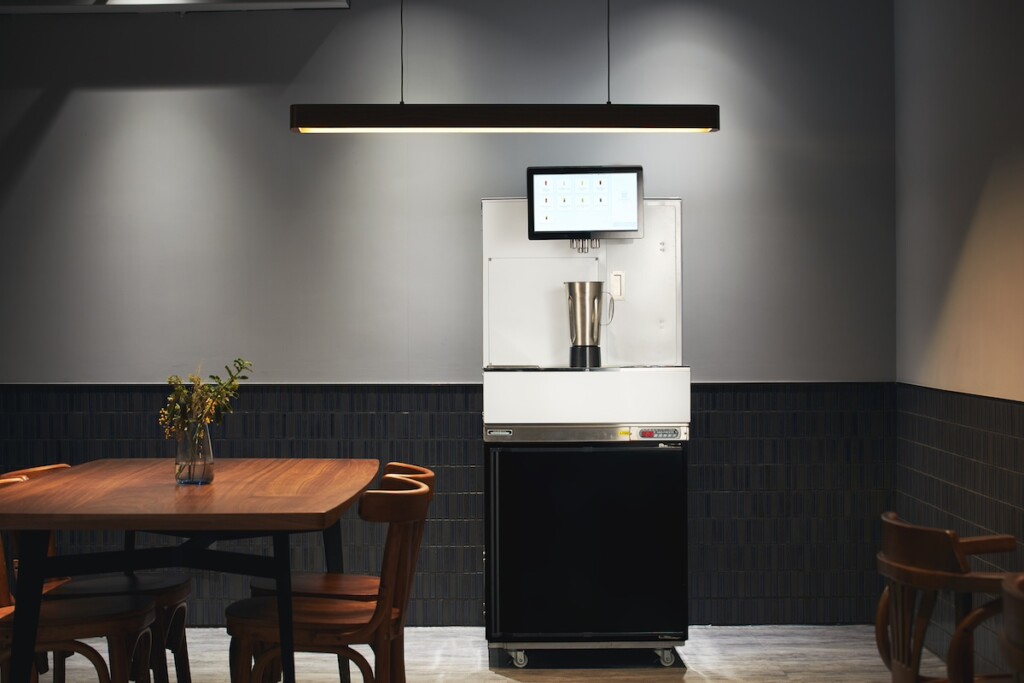
Some newer units enable craft beverages to be dispensed in under 20 seconds. Courtesy of Botrista.
When planning how to deliver quick, nutritious options to those who could use it most, one smoothie kiosk manufacturer considered customers in places like hospitals and colleges, with around-the-clock traffic.
“It kind of brings a sense of optimism and energy,” they say, especially in healthcare facilities, where it can boost morale to have more options than chips from a vending machine.
Beyond morale, operators should be able to install the equipment and, other than ordering menu ingredients for their processes, need minimal human time and effort. Of course, even robots are fallible; maintenance and cleaning will ensure they remain effective. For example, cleaning buckets or containers used to feed food or liquids into the machines marks one point of upkeep. Also consider service and whether that is included in the company’s agreement, or if it would be an added cost.
One company’s kiosk is backed by beverage directors using built-in data/AI tools to optimize menus throughout the year, plus on-site support and ingredient inventory.
One manufacturer’s “masterful mixologist,” an AI-powered robot, helps make boba tea as well as alcoholic drinks and coffee, while an employee might focus on creating a guest experience. The mixologist is in diverse settings, from Globe Life Field in Arlington, Texas, where the Texas Rangers play, to a Walmart in a rural town in Georgia.
“It helps to generate revenue, and then it also offers that baseline of productivity,” the maker says. “And it’s able to work so often and so nonstop that the cost is really able to be driven down quite a bit.”
Making boba tea is a bit more complex for the unit. To do so, an employee will fill the cup with pearls or jelly, a QR code prints out, which the equipment scans before finishing the drink, sealing it and presenting it.
“I think really what it comes down to for the business is how to adjust the workflow,” the manufacturer says. At the stadium, for example, the equipment isn’t making dozens of drinks. Instead, it makes margaritas, lemon drops and whiskey sours, each of which people can only get through the robot.
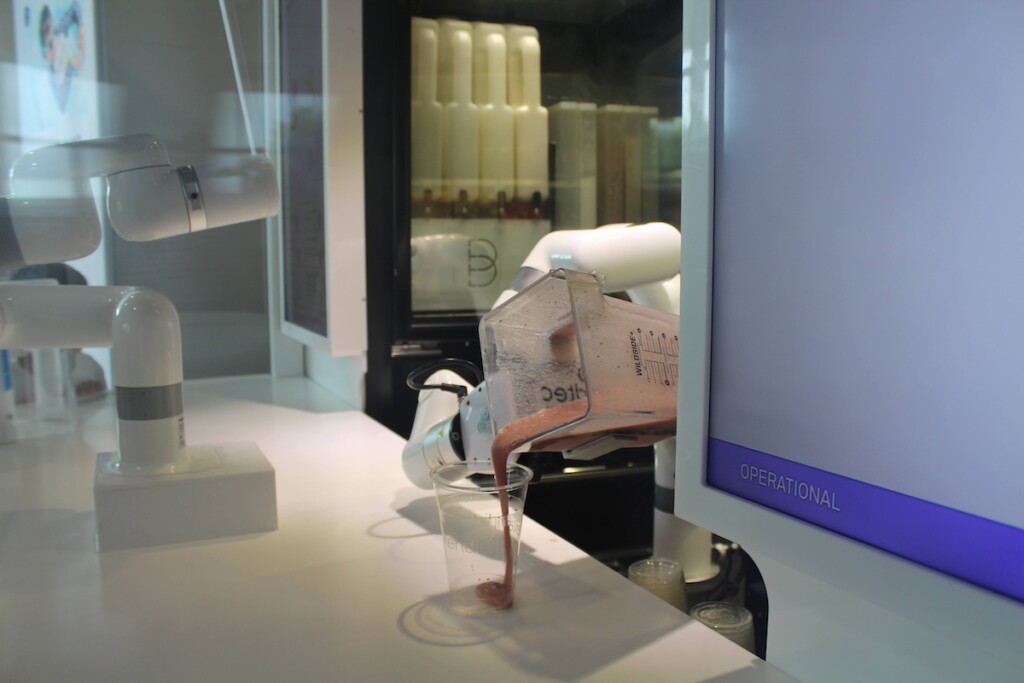
When specifying specialty beverage equipment, be sure to inquire about service, as it marks an important aspect of upkeep on automated units. Courtesy of Blendid.
The robot also can help with precise pouring, noting exactly how much is being used and keeping track of it, which can save money and time.
For those considering adding automated beverage equipment, manufacturers suggest mapping how it will help your process. Ensure that it will make something easier—taking care of a time-intensive process for a human, for example—while letting employees focus on human-centered efforts like dreaming up new guest experiences or creative mixtures.
THIRST-QUENCHERS
Some manufacturers of specialty beverage equipment include the following:
• Blendid
• Botrista
• Richtech Robotics
RELATED CONTENT
- Advertisement -
- Advertisement -
- Advertisement -
TRENDING NOW
- Advertisement -
- Advertisement -
- Advertisement -

